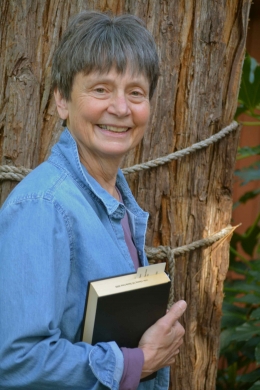In her thirty-four years of service to the University of California, Santa Cruz, Carol Freeman earned the affection and admiration of students, faculty, staff and administrators for her exceptional teaching skill, administrative acumen and visionary devotion to undergraduate education. She was awarded the UCSC Alumni Award for Distinguished Teaching in 1996 and the Dean McHenry Award for Distinguished Leadership in the Academic Senate in 2012. In nominating Freeman for the McHenry honor, the Senate’s Committee on Committees noted that “Senior Lecturer with Security of Employment Emerita Carol Freeman … personifies the ideals of collegial, creative, principled service these awards recognize,” and praised the “persistence, dedication, commitment, and above all, excellence” that characterized every aspect of her multifaceted and “powerfully influential” work for the university.
As the founding coordinator and eventually chair of the Campus Writing Program, Freeman shaped it into a vibrant, nationally acclaimed undergraduate writing program with a rich lower- and upper-division curriculum—characterized by a 1985 external review committee as a “campus treasure.” Emphasizing the hiring and retention of a diverse, collegial and dedicated core faculty of lecturers who took part in both pedagogical and administrative aspects of campus writing instruction, she deftly shepherded the program through decades of campus administrative changes and financial challenges—repeatedly inventing constructive responses to potentially devastating setbacks, including a round of budget cuts that wiped out most peer tutoring and almost the entire upper-division curriculum.
In this oral history, conducted over the course of three interviews in late October and early November, 2012, Freeman talks about the emergence in the 1970s of new approaches to writing pedagogy that inspired her enthusiasm and shaped her approaches to teaching; about the maturation of the Writing Program’s mission, goals and activities; about the often delicate negotiations, and sometimes gratifying relationships, with academic and administrative colleagues on which the program’s continuing existence relied; and about her commitment to providing sustainable working conditions and professional respectability for university writing teachers.


 Santa Cruz, CA
Santa Cruz, CA



